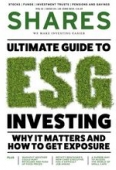Archived article
Please note that tax, investment, pension and ISA rules can change and the information and any views contained in this article may now be inaccurate.
The rules companies have to follow when reporting earnings

In order to successfully navigate the stock market it is useful to understand the rules on reporting earnings and what companies have to do if they know that their earnings are going to be either way above or way below market forecasts.
London Stock Exchange (LSE) has a 100-page document which sets out the rules and responsibilities for companies looking to join the market and the ongoing rules on disclosure for quoted companies.
Above all, the LSE has a responsibility to all participants, that is companies, professional investors and retail investors, to make sure that it runs a ‘proper and orderly market’. In order to achieve this, the exchange requires listed companies to ‘publish price-sensitive information on a timely basis and in accordance with the market abuse regulation’.
The quid pro quo for getting a listing on the exchange and getting access to outside investors is that, if a company’s board knows that the company is about to beat or miss earnings forecasts spectacularly, they have to tell the exchange as soon as possible.
PUT IT IN YOUR DIARY
Almost every quoted company has a financial calendar on its website along with its recent results and past accounts. Some firms only report half and full year results, while some report every quarter, but every firm issues a trading update for its annual general meeting (AGM).
These dates are sent to the stock exchange and are a matter of record, so investors can make a note in their diary of when a company they own is next due to update the market.
If a company suddenly issues an unscheduled trading update, it’s a sure-fire sign it has something significant to say and more often than not it will be bad news not good news.
Some companies have been known to try to sneak out bad news in an innocuous-looking AGM notice or a change of director, say, so it pays to keep an eye on the stock exchange’s regulatory news service (RNS) or sign up for company announcements.
LONG HOT SUMMER
Sometimes the wait for news can seem interminable. Shareholders in premium mixer-maker Fevertree Drinks (FEVR:AIM) will remember last summer’s long wait for some kind of update.
Having posted its interim results on 24 July, including the tantalising news of a tie-up with SGWS in the potentially game-changing US market, the company promptly went quiet for a full six months.
The end of the year approached and there was still no news. Some investors – fearful of a negative pre-announcement maybe, or more likely fearful of the lack of a positive pre-announcement – tipped out their shares, sending the price tumbling from £30 to £22.
The company remained tight-lipped, but when it eventually reported investors who had held fast or added to their holdings at £22 were rewarded with a 45% gain in the following five months.
As we approach the interim results next month, Fevertree shares are again sliding as each day passes without a positive pre-announcement. Investors who believe in the growth story might want to take note.
CRIMINAL TENDENCIES
When a company does breach the stock exchange’s reporting standards, the exchange itself has fairly limited powers. It can suspend trading in the shares or, in extreme circumstances, it can cancel their right to be traded. In practice it is more likely to censure a company, privately or publicly, or issue a fine.
The act of issuing a profit warning, even if the warning is monumental, isn’t in itself a criminal offence. However, if a company warns that profits are going to miss forecasts or that they have been over-stated in the past as a result of criminal activity, the issue usually gets escalated to the regulator, the Financial Conduct Authority (FCA), and in some cases the Serious Fraud Office (SFO) will need to be involved.
In October last year cafe operator Patisserie announced that it had uncovered ‘significant and possibly fraudulent’ irregularities in its accounts.
The stock exchange suspended the shares as a precaution, but the fraud was so extensive that even months of investigation by forensic accountants couldn’t get to the bottom of it and eventually the stock was delisted.
When Tesco (TSCO) admitted in 2014 that it had over-stated its profits by £326m due to the way it booked payments from suppliers, it was ordered by the FCA to pay £85m in compensation to investors who were misled by a trading statement in August 2014 just before the revelations were made public.
The update effectively created a ‘false market’ in Tesco shares and bonds which meant that some investors paid more than they should have.
Tesco was also fined £129m by the SFO for false accounting, although under the terms of the deal between the company and the agency it didn’t have to admit any wrongdoing.
Disclaimer: The writer owns shares in Fevertree
Important information:
These articles are provided by Shares magazine which is published by AJ Bell Media, a part of AJ Bell. Shares is not written by AJ Bell.
Shares is provided for your general information and use and is not a personal recommendation to invest. It is not intended to be relied upon by you in making or not making any investment decisions. The investments referred to in these articles will not be suitable for all investors. If in doubt please seek appropriate independent financial advice.
Investors acting on the information in these articles do so at their own risk and AJ Bell Media and its staff do not accept liability for losses suffered by investors as a result of their investment decisions.

 magazine
magazine










